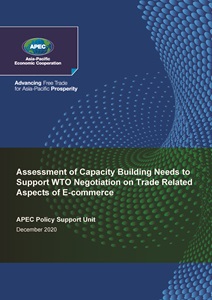
Proceedings
APEC Workshop on Promoting Decarbonization of Power Sector by Using Carbon-Free Energy (CFE)
The Asia-Pacific Economic Cooperation (APEC) is a regional economic forum established in 1989 to leverage the growing interdependence of the Asia-Pacific.
The Asia-Pacific Economic Cooperation (APEC) is a regional economic forum established in 1989 to leverage the growing interdependence of the Asia-Pacific.
APEC ensures that goods, services, investment and people move easily across borders. Members facilitate this trade through faster customs procedures at borders; more favorable business climates behind the border; and aligning regulations and standards across the region.
APEC ensures that goods, services, investment and people move easily across borders. Members facilitate this trade through faster customs procedures at borders; more favorable business climates behind the border; and aligning regulations and standards across the region.
APEC works to help all residents of the Asia-Pacific participate in the growing economy.
APEC works to help all residents of the Asia-Pacific participate in the growing economy.
Capacity building projects play an important role in helping translate APEC's goals into reality.
Capacity building projects play an important role in helping translate APEC's goals into reality.

Reports
•December 2020
Download Report
7MB
Published Under
APEC Secretariat, APEC Policy Support Unit
Accessed
6274
Pages
289
This study has been designed to contribute to the ongoing WTO negotiations on e-commerce as well as the capacity building activities that may arise from it. It comprises two main components, namely (1) the database component and (2) the case study component. The former aims to better situate APEC economies in the wider spectrum of laws and regulations affecting e-commerce; while the latter intends to showcase examples of specific policies and initiatives that could facilitate or affect e-commerce. Possible capacity building activities identified in the report include: (1) encouraging the adoption of international standards, practices, guidelines and recommendations in economies’ laws and regulations; (2) improving mutual recognition and interoperability among the laws, regulations and initiatives; (3) strengthening international cooperation with regard to specific aspects of e-commerce; (4) instituting new approaches to regulations, including the use of technology to facilitate process; and (5) ensuring that laws, regulations and initiatives are practical, reasonable and can be operationalized efficiently.

